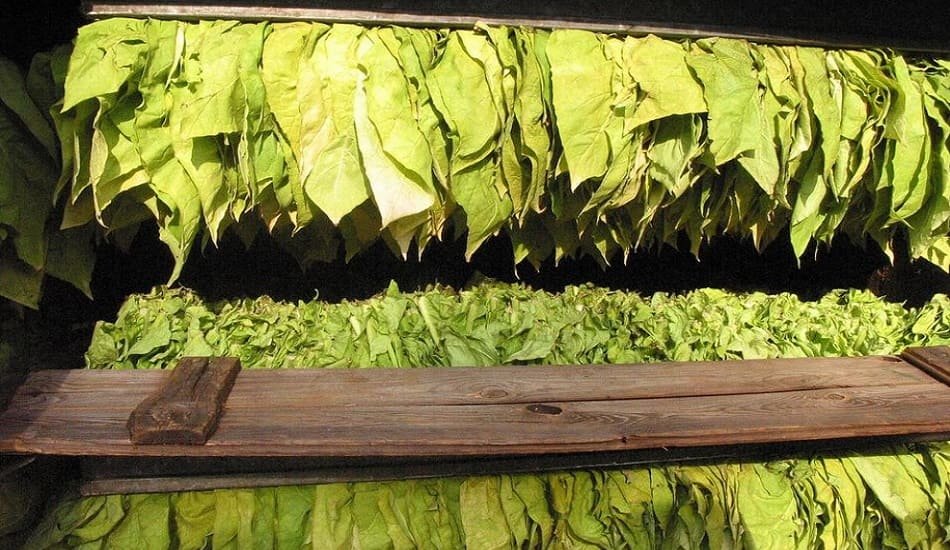The tobacco industry is a much bigger threat than most people realize: WTO
The WHO said on Tuesday that the tobacco industry is a much bigger threat than most people realize because it is one of the biggest polluters in the world, leaving behind mountains of trash and contributing to global warming.
The World Health Organization (WHO) said that the industry was responsible for a lot of deforestation, taking land and water away from food production in poor countries where it was needed most, spewing out plastic and chemical waste, and releasing millions of tonnes of carbon dioxide.
In its report, which was released on World No Tobacco Day, the UN agency said that the tobacco industry should be held responsible and pay for the cleanup.
Also Read | Tobacco farmers anxious as Covid-19 second wave triggered price correction.
The report ‘Tobacco Poisoning Our Planet’ looks at the effects of the whole cycle, from how plants grow to how tobacco products are made to how they are used and thrown away.
Even though the effects of tobacco on health have been known for a long time, smoking still kills more than eight million people around the world every year, the report focuses on its effects on the environment as a whole.
Ruediger Krech, WHO’s director of health promotion, told AFP that the results are ‘pretty bad’ and that the industry is ‘one of the biggest polluters we know of.’
The industry is to blame for the loss of about 600 million trees every year, and the report found that growing and making tobacco uses 200,000 hectares of land and 22 billion tonnes of water every year.
It also gives off about 84 million tonnes of carbon dioxide, according to the report. Also, ‘tobacco products are the most littered thing on the planet because they contain over 7,000 toxic chemicals that get into our environment when they are thrown away,’ Krech said.
He said that each of the 4.5 trillion cigarettes ends that end up in our oceans, rivers, sidewalks, and beaches every year can pollute 100 liters of water. Up to a quarter of all tobacco farmers get sick from the nicotine they take in through their skin, which is called ‘green tobacco sickness.’
Krech said that farmers who work with tobacco leaves all day take in the same amount of nicotine as if they smoked 50 cigarettes. This is especially scary for the many children who help their parents grow tobacco. ‘Think about a 12-year-old being around 50 cigarettes every day,’ he said.
The report said that most tobacco is grown in poorer countries where water and farmland are often scarce and where these crops are often grown at the expense of important food crops. About 5% of the world’s forests are also lost because of tobacco farming, and it also uses up a lot of water.
At the same time, the processing and shipping of tobacco are responsible for a big chunk of the world’s greenhouse gas emissions, which is equal to one-fifth of the carbon footprint of the world’s airline industry.
WHO also said that products like cigarettes, smokeless tobacco, and electronic cigarettes add a lot to the amount of plastic pollution in the world.
The report said that microplastics, which are tiny pieces of plastic that have been found in every ocean and even at the bottom of the world’s deepest trench, are found in cigarette filters and are the second-highest source of plastic pollution in the world.
And yet, despite what the tobacco industry says, WHO said there is no proof that filters are better for your health than non-filtered cigarettes.
Also Read | FAIFA urge Prime Minister to withdraw new bill on cigarette and tobacco products.
The UN agency asked policymakers all over the world to think of cigarette filters as one-time-use plastics and think about banning them. It also criticized the fact that taxpayers all over the world were paying a lot of money to clean up the mess made by the tobacco industry.
The report found that China pays about $2.6 billion and India about $766 million each year to clean up discarded tobacco products, while Brazil and Germany each pay about $200 million.
WHO insisted that more countries, like France and Spain, should follow the so-called Polluter Pays Principle. Krech said, ‘It’s important that the industry really pays for the mess they’re making.’


















Add Comment